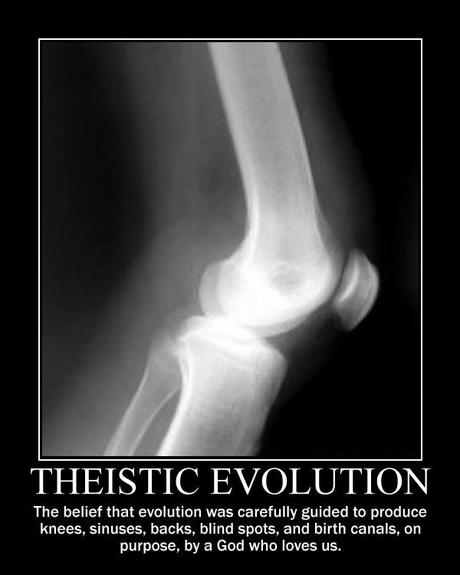What would the world be like if Darwin had never existed? This is the question Peter Bowler asks in Darwin Deleted: Imagining a World Without Darwin (2013). While counterfactual histories are often entertaining (and thus make for good beach reading), they’ve always left me feeling empty. No matter how informed, counterfactuals are the intellectual equivalents of empty calories: speculation is sugar. But I can see how a counterfactual that deals with the history of ideas rather than events might be different. Indeed, I can imagine ways in which such a counterfactual might lead to keen insights. This is especially so with Darwin, whose ideas have been the subject of endless debate and overlay since 1859.
In this review of Darwin Deleted, Rachel Mason Dentinger discusses the conflict between science and religion which erupted after publication of the Origin:
[P]rogressive and purposeful non-Darwinian models of evolution were also more acceptable to religious thinkers. The notion that evolution led to an ultimate improvement in organic life allowed humans to continue to imagine themselves at a pinnacle, even if it was no longer the pinnacle of creation, but the pinnacle of an evolutionary progression.
Darwin’s model of evolutionary change by natural selection, in contrast, was not only open-ended and non-progressive, but also harsh and mechanistic. According to Bowler, in challenging the benevolent view of nature cultivated by Christianity, Darwinism was responsible for the virulent opposition that seems to exist between religion and evolution in western society. Darwin provided a focal point for tensions and anxieties that might have remained more diffuse in his absence.
In a world without Darwin, evolution would have continued to embody an upward motion, moving toward a higher organic and moral goal. This sustained belief in a progressive model of evolution, Bowler writes, would have provided an accommodation between evolution and religion.
This is not quite correct. There are numerous passages in Darwin’s work which suggest that he saw evolution, at least parts of it, as progressive. Progressivism is an issue he wrestled with throughout his life, just as he did with whether evolution was random or law-like. Both issues are of course relevant to the teleology debates that are raging among contemporary scholars and scientists.
The dominant view of evolution today is (unfortunately) progressive. Thus, it is not true that “in a world without Darwin, evolution would have continued to embody an upward motion, moving toward a higher organic and moral goal [that] would have provided an accommodation between evolution and religion.” Such an accommodation already exists, as evolutionary theists are happy to attest.


